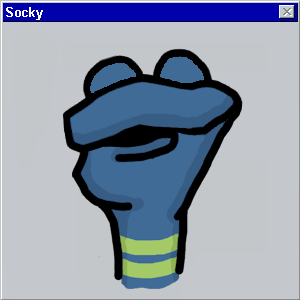An average question, just don't be mean.
May 15, 2009 3:23 AM Subscribe
How much tap-temperature water (say 15 C) would you need to add to 1 litre of water to make a mass of water 80 C?
The instructions on my Aeropress say the best temperature say the best temperature for coffee is 80 C. I would imagine a simple average (1*100 + x*15 = 1 * 80 +x *80 => x~.3 litres ) of mass and temperature would not be correct considering I would get a different answer if I chose Kelvin, so what is the correct way? What is a good heuristic?
The instructions on my Aeropress say the best temperature say the best temperature for coffee is 80 C. I would imagine a simple average (1*100 + x*15 = 1 * 80 +x *80 => x~.3 litres ) of mass and temperature would not be correct considering I would get a different answer if I chose Kelvin, so what is the correct way? What is a good heuristic?
Best answer: I got the same result as Zippy (on preview)
(1 * 100) + (x * 15) = (1 + x) * 80
which reduces to
20 = (x * 65)
or x = .3 litres
My calculation is the same in Kelvin:
(1 * 373) + (x * 288) = (1 + x) * 353
373 + 288x = 353 + 353x
(subtract 353 from both sides, then subtract 288x from both sides)
20 = (x * 65), i.e. the same result...
posted by le morte de bea arthur at 3:48 AM on May 15, 2009
(1 * 100) + (x * 15) = (1 + x) * 80
which reduces to
20 = (x * 65)
or x = .3 litres
My calculation is the same in Kelvin:
(1 * 373) + (x * 288) = (1 + x) * 353
373 + 288x = 353 + 353x
(subtract 353 from both sides, then subtract 288x from both sides)
20 = (x * 65), i.e. the same result...
posted by le morte de bea arthur at 3:48 AM on May 15, 2009
Response by poster: Thanks for the quick response. I feel a bit shamefaced I didn't go to the effort of checking it in Kelvin before stating it would be different :-(
posted by doozer_ex_machina at 4:01 AM on May 15, 2009
posted by doozer_ex_machina at 4:01 AM on May 15, 2009
The underlying assumption here is that the temperature scale is linear -- i.e., that the difference between 0 and 50 degrees is "equal" to the difference between 50 degrees and 100 degrees. I think this is true as long as the specific heat of water (the heat energy needed to raise the temperature of a certain mass of water by a certain amount) is relatively constant over the range we're considering.
According to this chart, it seems there's less than 1% deviation in specific heat capacity between the boiling point and whatever the baseline point is (either room temperature or the freezing point). So the scale is effectively linear, and the weighted average calculation is valid.
posted by RobinFiveWords at 4:01 PM on May 15, 2009 [1 favorite]
According to this chart, it seems there's less than 1% deviation in specific heat capacity between the boiling point and whatever the baseline point is (either room temperature or the freezing point). So the scale is effectively linear, and the weighted average calculation is valid.
posted by RobinFiveWords at 4:01 PM on May 15, 2009 [1 favorite]
This thread is closed to new comments.


You can add water that is 15 degrees C (288K).
You want the final amount of water to be 80 degrees C (353 K)
You're calculating a weighted average, where the liters are the weight, and the temperature is what's being averaged:
1 * 100C + x * 15C
----------------------- = 80C
1 + x
Solving,
100 + 15x / (1 + x) = 80
100 + 15x = 80 (1+x)
100 = 80 + 80x - 15x
20 = 65x
x = 20/65 liters
Works in Kelvin, too.
1 * 373K + 20/65 * 288K
----------------------------- = 353K = 80C
1 + 20/65
posted by zippy at 3:44 AM on May 15, 2009 [1 favorite]